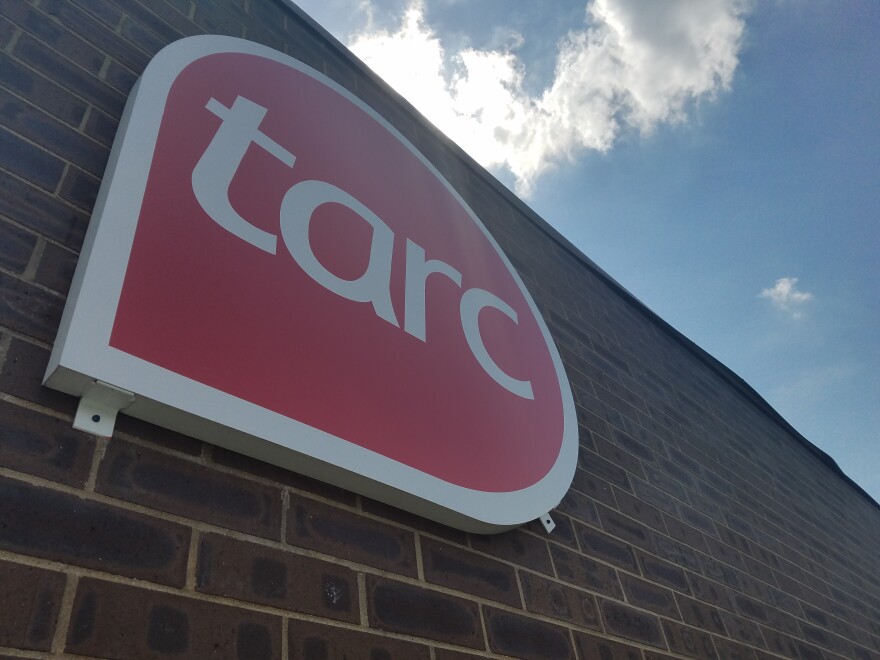Efforts to cut emissions from Louisville's public transportation system received a boost this week.
The Transit Authority of River City earned $7.4 million from a federal grant on Tuesday to buy new electric buses and build on its charging system.
It’s part of a $1.6 billion investment awarded to national projects through the Federal Transit Administration’s (FTA) Buses and Bus Facilities and Low- and No-Emission Vehicle programs.
According to Geoffrey Hobin, TARC’s director of grants, the agency currently operates six electric buses that run on Fourth Street. However, those buses can only travel 20 miles at a time and have to be recharged throughout the day, up to 10 minutes or more each time.
Hobin said TARC plans to buy new, extended-range electric buses that could run about 180 miles on a single charge. They would then charge overnight behind Union Station downtown, where they’re stored after use. Funds would go toward establishing a charging station there.
TARC will purchase six buses using FTA funding. The agency has already ordered eight new electric buses thanks to Congestion Mitigation and Air Quality funding awarded to Kentucky, said Hobin, who added the buses are expected to last 15 years.
The next batch of battery-powered buses will arrive in 2024 due to manufacturing schedules and the need to get the right infrastructure in place, he said.
“We have to go through the procurement process, which we’re just beginning, to acquire that charging infrastructure. We have to work with LG&E very closely to make sure that there is enough power connected to Union Station to provide charging,” Hobin said.
He said TARC’s first extended-range electric buses will likely serve its Oak Street and Hill Street routes, also known as Routes 25 and 27.
In a press release, the agency said it plans to use the funding to place zero-emission vehicles on a route connecting minority and low-income communities with job opportunities.
“That will put TARC well along the path to reducing emissions overall, and especially along those routes that serve the historically disadvantaged neighborhoods where health outcomes are much worse than for the Louisville community as a whole,” said Carrie Butler, executive director of TARC, in the release.
Half a million dollars will also go toward training mechanics to handle the electrical infrastructure.
“We're talking about 800-volt systems. So safety is absolutely requisite. You got to know what you're doing,” said Hobin.
TARC owns over 200 buses for mass transit, according to Hobin, as well as nine electric buses that are currently not being used. They run 10 to 20 miles per charge and were part of the free LouLift program, formerly known as ZeroBus, that operated from 2015 to 2020.


